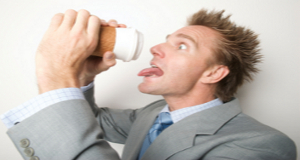
Many people think peak performers are always burning the candle at both ends. I certainly believed that at one point. Others of us struggle to find balance and give up healthy habits like exercise, or spending time with friends and family, in an attempt to work harder thinking we will get more done. In extreme cases, some peak performers get anxious at just the thought of sleep because they fear the lack of productivity that occurs during restful periods.
To the contrary, as humans, we need to commit to balance of which adequate sleep is a crucial component. When we are asleep, we become free of all of the stress from the outside world and our body’s energy is able to restore & renew.
There are three very basic factors of sleep:
1. The time you enter sleep
2. The quality of sleep you get during rest
3. The time you wake up
To help improve these three factors you have to have proper sleep hygiene. Sleep hygiene is a fancy term used to describe ways to set yourself up for optimal recovery during rest. Organize and implement simple sleep hygiene principles and performance in all areas of your life will improve:
1. In the evening do things that are relaxing (such activities include reading a book and listening to slow music). Avoid things that are stimulating (such as exercise or watching a scary movie).
2. Have a pre-sleep routine. Routines train your mind it is time to go to sleep. Examples include taking a warm bath, reading a fictional book, or listening to relaxing music for a few minutes.
3. Have a fixed bedtime and wake-up time. Go to bed at a predetermined time and try to wake up at the same time every day. Keep in mind that you need at least 6 hours of sleep but the common suggested amount of sleep is 8 hours.
4. If possible, schedule all of your day’s activity. This means determining and following a scheduled meal time, workout time and other activities.
5. Avoid taking naps during the daytime especially after 3 PM. Naps sort of reset your energy level for the day, which can be beneficial but not if you have trouble sleeping. Doing so would mean you’ll have more energy and less of a sleepy feel come bedtime.
6. Put away gadgets or any electronics that would make you do something related to your work or remind you of your responsibilities or problems. Relax and remove your worries.
7. Avoid caffeine, nicotine and alcohol well before your bedtime. Typically, it is suggested to avoid this 4-6 hours before bedtime as these chemicals are all powerful.
8. Avoid sleeping pills or if inevitable, take them with caution. Consult your doctor before taking sleeping pills or if you need them at all. Once you establish dependency, it is a downward spiral.
9. Buy a comfortable bed and use comfortable bedding; Buy them personally so that you are comforable with the feel.
10. Eliminate noise and light. Make the bedroom quiet, cool and dark. This type of environment soothes the senses and relaxes the mind.
11. Use the sun as part of your biological clock. As soon as you wake up, try and face the sunlight for a few minutes. This can help with Seasonal Affective Disorder as well.
Your bedroom should only be used for sleep or intimate encounters. Working, watching television, and/or playing on your laptop can all hinder sleep. A radio is okay if the station is not talk radio. Reading non-fiction or listening to talk radio is not recommended because it keeps your brain stimulated.
Getting the best sleep possible is one of the best ways to optimize the next morning’s challenges and opportunities. Getting sleep is one of the most undervalued traits of the peak performer. Improve the quality of your sleep and you will be rewarded!
